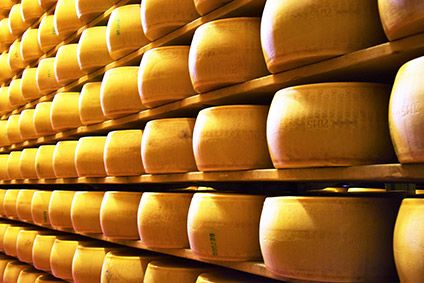
The European Union and China have concluded negotiations today (6 November) on a bilateral agreement over protected geographical indications (PGI) for a range of food and drinks products.
The agreement will protect “against imitations and usurpation”, the European Commission said in a statement, adding: “This landmark agreement is expected to result in reciprocal trade benefits and demand for high-quality products on both sides.”

Discover B2B Marketing That Performs
Combine business intelligence and editorial excellence to reach engaged professionals across 36 leading media platforms.
It covers 100 EU food and drink products sold into China and an equal number of items exported by the Asian country to the European trading bloc.
On the EU side, it mainly covers cheeses within the food category such as Danablu, Feta, Roquefort, Gorgonzola and Parmigiano, along with certain names of butter, margarine and olive oils such as Kritis.
Selected fruit, vegetables and cereals also feature, along with farmed Scottish salmon and certain meat products such as Prosciutto di Parma.
The agreement builds on a commitment made at a EU-China summit in October.

US Tariffs are shifting - will you react or anticipate?
Don’t let policy changes catch you off guard. Stay proactive with real-time data and expert analysis.
By GlobalDataPhil Hogan, the EC’s agriculture and rural development commissioner who signed the agreement with Chinese minister Zhong Shan, said: “European geographical indication products are renowned across the world for their quality. Consumers are willing to pay a higher price, trusting the origin and authenticity of these products, while further rewarding farmers.
“This agreement shows our commitment to working closely with our global trading partners such as China. It is a win for both parties, strengthening our trading relationship, benefiting our agricultural and food sectors, and consumers on both sides.”
The statement noted that trade between the two nations in agri-food exports amounted to EUR12.8bn (US$14.1bn) in the 12 months through August.
On the EU side,the European Parliament and the European Council need to sign off on the agreement, which is expected to come into force before the end of next year.
From China’s perspective, the deal covers select navel oranges, bean pastes, rice, teas, rice wine, bean sprouts and mooncakes, among other food and drink products.





